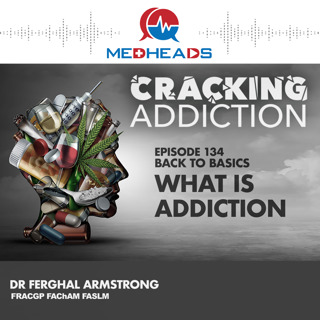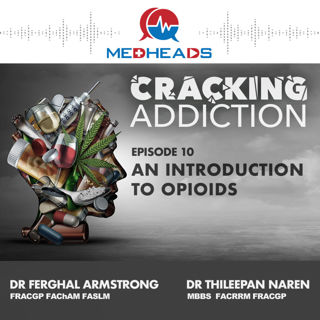
An Introduction to Opioids
In this episode of Cracking Addiction we provide an introduction to opioids, how they work what receptors they act upon and some of the harms associated with opioids.
6 Okt 202113min

Alcohol Use Disorder Summary Points
In this episode of Cracking Addiction we summarise the previous episodes detailing alcohol use disorder, alcohol withdrawal management, rationale for anti-craving medications and how to assist our patients in a safe, ethical and humane manner.
29 Sep 202122min
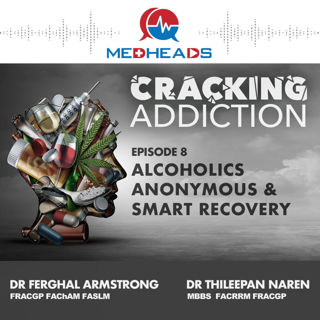
Alcoholics Anonymous and SMART Recovery
In this episode of Cracking Addiction we discuss both Alcoholics Anonymous and SMART recovery programs and review the evidence base behind each of these interventions and how to help patients choose the best behavioural management program to help manage relapse prevention.
22 Sep 202122min
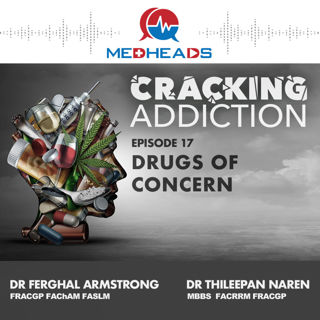
Alcohol Anti-Craving Medications
In this episode of Cracking Addiction we explore the common anti-craving medications used in alcohol use disorder and explain what the choices are, what the indications for these medications are, how they work as well as the common side effects and interactions.Blog available
15 Sep 202125min
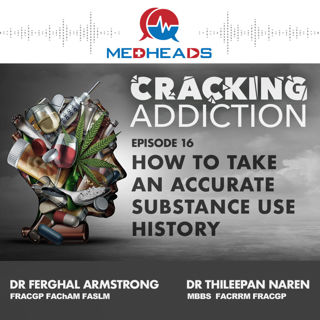
Residential alcohol withdrawal management
In this episode of Cracking Addiction we explore the intricacies of residential or inpatient alcohol withdrawal management including how to manage patients in a residential setting, complications that can arise and how to management then during alcohol withdrawal, medications and potential dosages of medications uses as well as how to manage patients with pre-existing medical and psychiatric comorbidities.
8 Sep 202120min
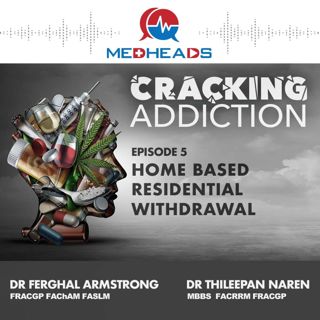
Home Based Residential Withdrawal
The safe management of alcohol withdrawal is a fundamental skill that medical practitioners should be aware to perform. It is a protocol driven management and needs to be to ensure patient safety. In this episode of Cracking Addiction we explore home based or outpatient alcohol withdrawal and how to select the appropriate people for home based alcohol withdrawal management, how to manage the withdrawal symptoms and how to safely follow up patients.
1 Sep 202121min

The physiology of alcohol withdrawal
Chronic alcohol use can lead to physical dependence. In this episode of Cracking Addiction we talk about the physiology of alcohol withdrawal, complications of alcohol withdrawal including delirium tremens and Wernicke’s encephalopathy and we discuss some of the simple interventions that can be used to guard against these complications
25 Aug 202117min

Alcohol Consumption Pt2
In this episode of Cracking Addiction, we continue our deep dive into alcohol. We define alcohol use disorder, the definitions of dependence and addiction, the harms related to alcohol and the natural progression of alcohol use disorder and how to screen for people who might be at risk of alcohol use disorder and the importance of brief interventions.
18 Aug 202117min
